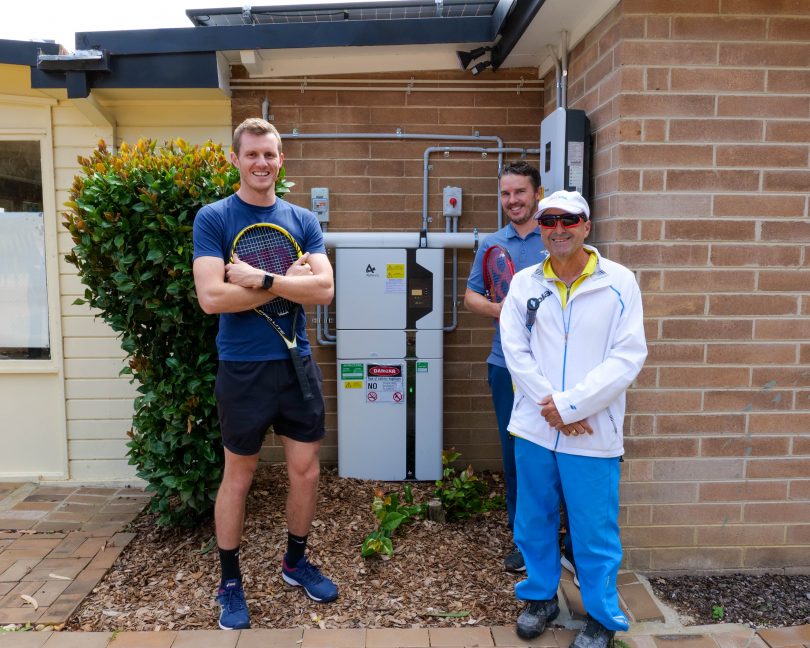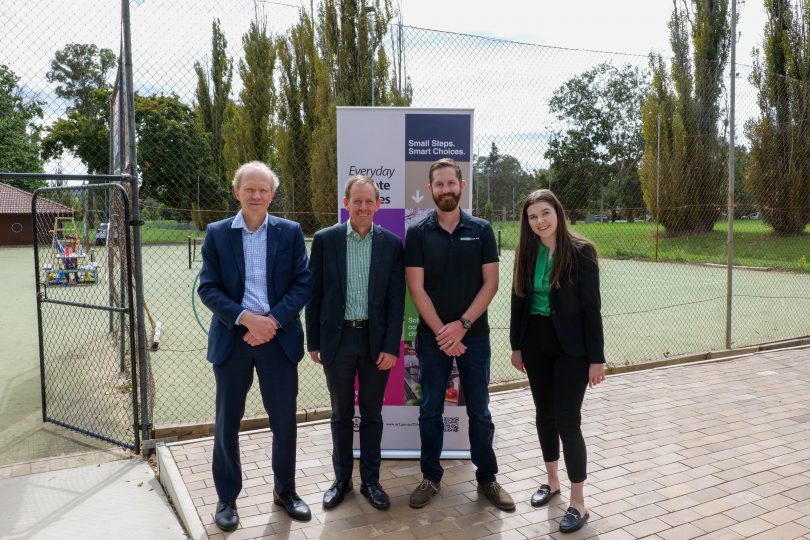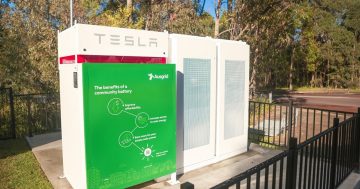
Players from Manuka Tennis Club – the ACT’s first carbon-neutral tennis club – standing in front of their new solar battery storage system. Photo: ACT Government.
Batteries will play an increasingly important role in backing up rooftop solar as the Territory prepares to transition away from gas by 2045, according to the ACT Government.
The current grid would be unlikely to support a complete diversion from gas and the associated increase in demand, Minister for Energy and Emissions Reductions Shane Rattenbury acknowledged.
“We’re in the middle of a major transition of our energy system and, with population growth, we’re going to need to upgrade the electricity grid anyway,” he said.
“But with the electrification of so many things – be it households, businesses, the industrial sector and, of course, our transport system – we will need to strengthen the grid,” he said.
He anticipated this would happen through an increasing reliance on “batteries of all scales” including household, neighbourhood and large-scale industrial batteries.
Mr Rattenbury noted the other strength of batteries is that, because a lot of electricity use occurs at night, they allow solar panels to better reach their full potential.
“These solar panels can power up the batteries during the course of the day and then draw the electricity back down at night at a time when electricity prices are higher due to higher demand on the grid,” he explained.
Manuka Tennis Club – which has just become the ACT’s first carbon-neutral club, thanks in part to 44 solar panels as well as a battery installed through the government’s Next Gen program – knows all about this.
Club president Bill Brummit explained the club’s biggest charge on its electricity bills, before installing the system, was for lighting the courts at night.
“Without the battery, we would be selling the electricity generated from the solar panels during the day and buying back at a more expensive rate at night. With the battery, we can run a full night of competition tennis off the battery and still have two per cent left at the end.
“Once the battery is fully charged in the daytime, we’re feeding electricity back into the grid,” Mr Brummit explained – which means they are now also saving money.
He said the investment also “aligns with the values of [the club’s] members”.
The Next Generation (Next Gen) Energy Storage program allows Canberrans to receive a rebate of up to $3500 or 50 per cent of a solar battery’s price – whichever is lower.

President of Manuka Tennis Club Bill Brummit, Minister for Energy and Emissions Reductions Shane Rattenbury with an accredited solar installer and assistant director of the Next Gen program Emma Gillies. Photo: ACT Government.
Since the program’s inception in 2017, more than 2240 battery storage systems, including Manuka Tennis Club’s, have been installed through it.
Six more retailers have now been certified to come on board in what Mr Rattenbury described as “good news for the community and the environment”.
Mr Rattenbury said the addition of more retailers to the program would lead to more competition and innovation in the solar battery market and hoped to see different businesses take different approaches and supply different kinds of products.
Interested businesses are encouraged to apply.
“I look forward to working together to secure Canberra’s renewable energy future,” Mr Rattenbury said.
Original Article published by Lottie Twyford on Riotact.





